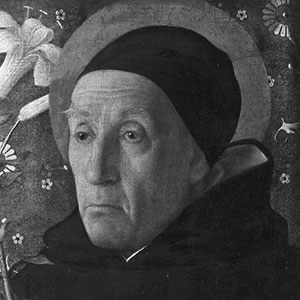Eckhart and his Life
Early in his life Eckhart entered the Dominican order. Christianity rests upon the assumption of a God that is wholly other. Mysticism, the union of the individual with the Divine, is contrary to the doctrines and legal framework upon which it is built. Eckhart preached independently and with an originality that got him into constant trouble. In 1327 Eckhart was charged with heresy and pantheistic conceptions though he died before the charges were ever brought to court.
The Church accused him of 'sowing thorns and thistles among the faithful'. Irrespective Eckhart is one of the greats and is best viewed outside of any compartmentalised tradition. Eckhart said 'God is with you everywhere - in the marketplace, as well as in seclusion, or in the church'
Eckhart and his Sayings
The most well-known mystic saying of Eckhart points to the indivisibility of the self and the Divine.
'The eye through which I see God is the same eye through which God sees me; my eye and God's eye are One eye, One seeing, One knowing, One love'.
Eckhart presents Oneness as a fact. Though he obviously sees sees separate objects,, in multiplicity he also sees them as facets of the same One thing. ANd herein lies the paradox of the mystic experience. Every object is both distinct and identical. Rudolph Otto describes it as follows, 'Black does not cease to be black, nor white white. But black is white and white is black'.
'When a man sees all in all, then he stands above mere understanding'
Like most Mystics Eckhart views all animals and creatures and forms as facets of the One.
'Every creature is a word of God'
Notice how in this final saying Eckhart describes the feelings associated with union with the Divine
'In this exalted (mystic) state (the soul) has lost her proper self and is flowing full flood into the unity of the Divine nature'
